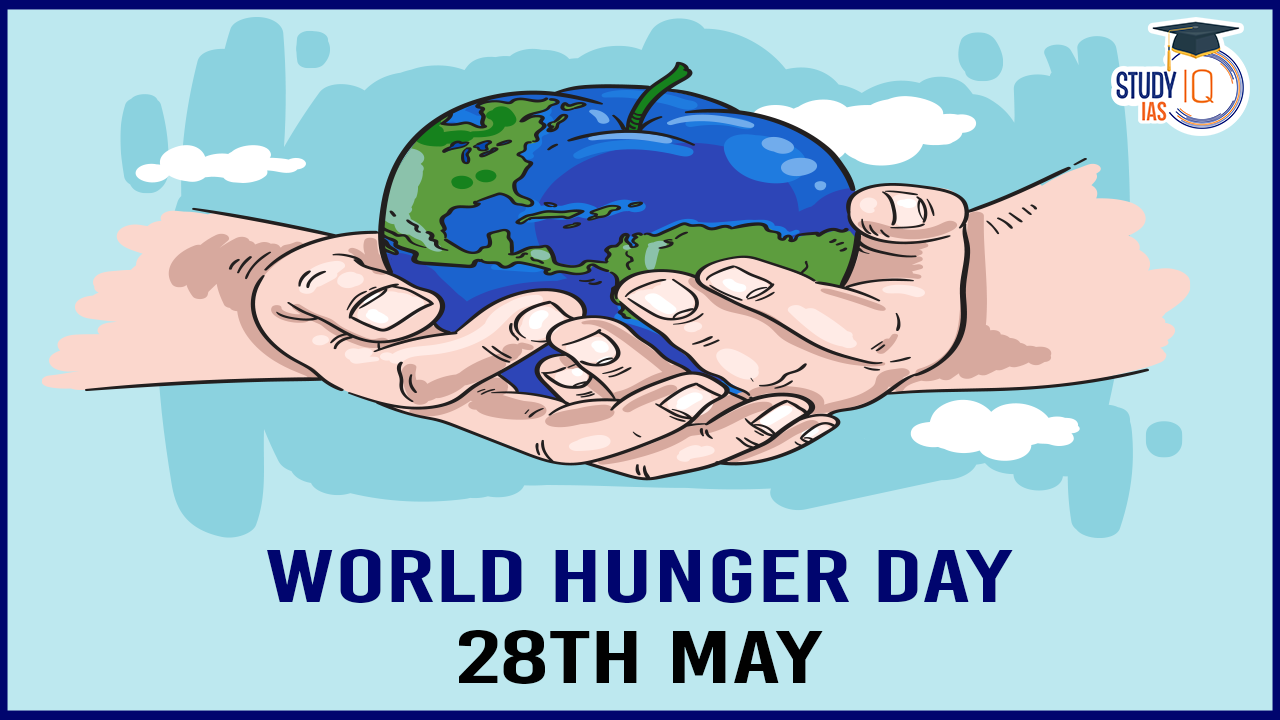Table of Contents
World Food Safety Day 2025 will be observed globally on June 7. This annual event serves as a critical reminder that safe food is not a luxury—it is a human right. This year’s theme, “Food Safety: Science in Action”, emphasizes how scientific innovation and evidence-based practices are key to reducing foodborne diseases and protecting public health. In this article, we cover the theme, history, significance, objectives, global and Indian food safety challenges, and how you can contribute.
World Hunger Day 2025
World Hunger Day 2025, observed on May 28th, underscores the critical need to address global hunger and malnutrition. Founded by the Hunger Project in 2011, this day serves as a platform to raise awareness and mobilize action towards sustainable solutions for food security and nutrition worldwide.
| Event | Details |
|---|---|
| Date | June 7, 2025 |
| Theme | Food Safety: Science in Action |
| Declared By | United Nations General Assembly (2018) |
| Organized By | FAO (Food and Agriculture Organization) & WHO (World Health Organization) |
| First Observed | 2019 |
| Slogan | Food safety is everyone’s business |
What is World Food Safety Day?
World Food Safety Day is observed each year to raise global awareness about the importance of safe food. Contaminated food affects over 1.6 million people daily and contributes to more than 200 diseases, ranging from mild infections to cancers. The day aims to educate consumers, empower food handlers, and encourage governments and industries to prioritize food hygiene and safety standards.
World Hunger Day 2025 Theme
The theme for World Hunger Day 2025 is “Empowering Youth, Ending Hunger”, focusing on the crucial role young people play in driving sustainable solutions to hunger and malnutrition. By investing in education, innovation, and leadership opportunities for youth, the theme highlights how their energy and ideas can transform food systems. It calls on governments, communities, and individuals to support youth-led initiatives that build resilient, equitable food access for all, leaving no one behind.
Background of World Hunger Day
- 1977: The Hunger Project is established as a global movement dedicated to ending hunger and poverty.
- 2011: The Hunger Project officially designates May 28th as World Hunger Day to raise awareness about the global hunger crisis.
- Since then, World Hunger Day has been observed annually, serving as a platform for advocacy and action.
- The day aims to mobilize communities, governments, and organizations to prioritize food security and nutrition as fundamental human rights.
- Through initiatives, education, and collaboration, World Hunger Day continues to play a pivotal role in addressing hunger and malnutrition on a global scale.
Significance of World Hunger Day
The significance of World Hunger Day 2025 lies in its role as a global platform to raise awareness about the pressing issue of hunger and malnutrition. Here is why it matters:
- Global Awareness: World Hunger Day brings global attention to the widespread issue of hunger and malnutrition.
- Humanitarian Imperative: It emphasizes the urgent need to ensure food security for all to address the humanitarian impact of hunger.
- Empowerment of Women: The theme underscores the crucial role of women in combating malnutrition and building healthier societies.
- Health and Well-being: Addressing hunger and malnutrition is essential for promoting individual and community health.
- Sustainable Development: World Hunger Day aligns with efforts to achieve Sustainable Development Goal 2, aiming to end hunger and promote sustainable agriculture.
- Call to Action: It inspires action at all levels to prioritize food security and nutrition as fundamental human rights.
Challenges and Solutions for Hunger
Despite concerted efforts, the global hunger crisis persists, exacerbated by conflicts, economic disparities, climate change, and now, the lingering effects of the COVID-19 pandemic. Achieving food security for all remains a complex challenge that requires multifaceted approaches, including:
- Sustainable Agriculture: Promoting environmentally friendly farming practices and empowering smallholder farmers to increase productivity and resilience to climate shocks.
- Access to Nutritious Food: Ensuring equitable access to diverse and nutrient-rich foods, particularly for vulnerable populations such as women, children, and rural communities.
- Empowering Women: Recognizing the pivotal role of women as farmers, caregivers, and decision-makers in food systems, and providing them with resources, education, and opportunities for leadership.
- Strengthening Health Systems: Investing in maternal and child health services, including prenatal care, nutrition counselling, and access to fortified foods and supplements.
- Global Cooperation: Fostering collaboration among governments, NGOs, businesses, and civil society to address the underlying drivers of hunger and malnutrition on a global scale.
World Hunger Day UPSC
As we mark World Hunger Day 2025, let us reaffirm our commitment to building a world where no one goes to bed hungry. By prioritizing the well-being of mothers and empowering communities with the tools and resources they need to thrive, we can create a future where every child has the opportunity to grow, learn, and realize their full potential. Let us seize this moment to turn the tide against hunger and malnutrition and forge a path towards a healthier, more equitable world for all.


 Miss Universe Winners List From 1952 to ...
Miss Universe Winners List From 1952 to ...
 Significance and History of Diwali Festi...
Significance and History of Diwali Festi...
 Asia Cup Winners List (1984–2025): Ind...
Asia Cup Winners List (1984–2025): Ind...

























